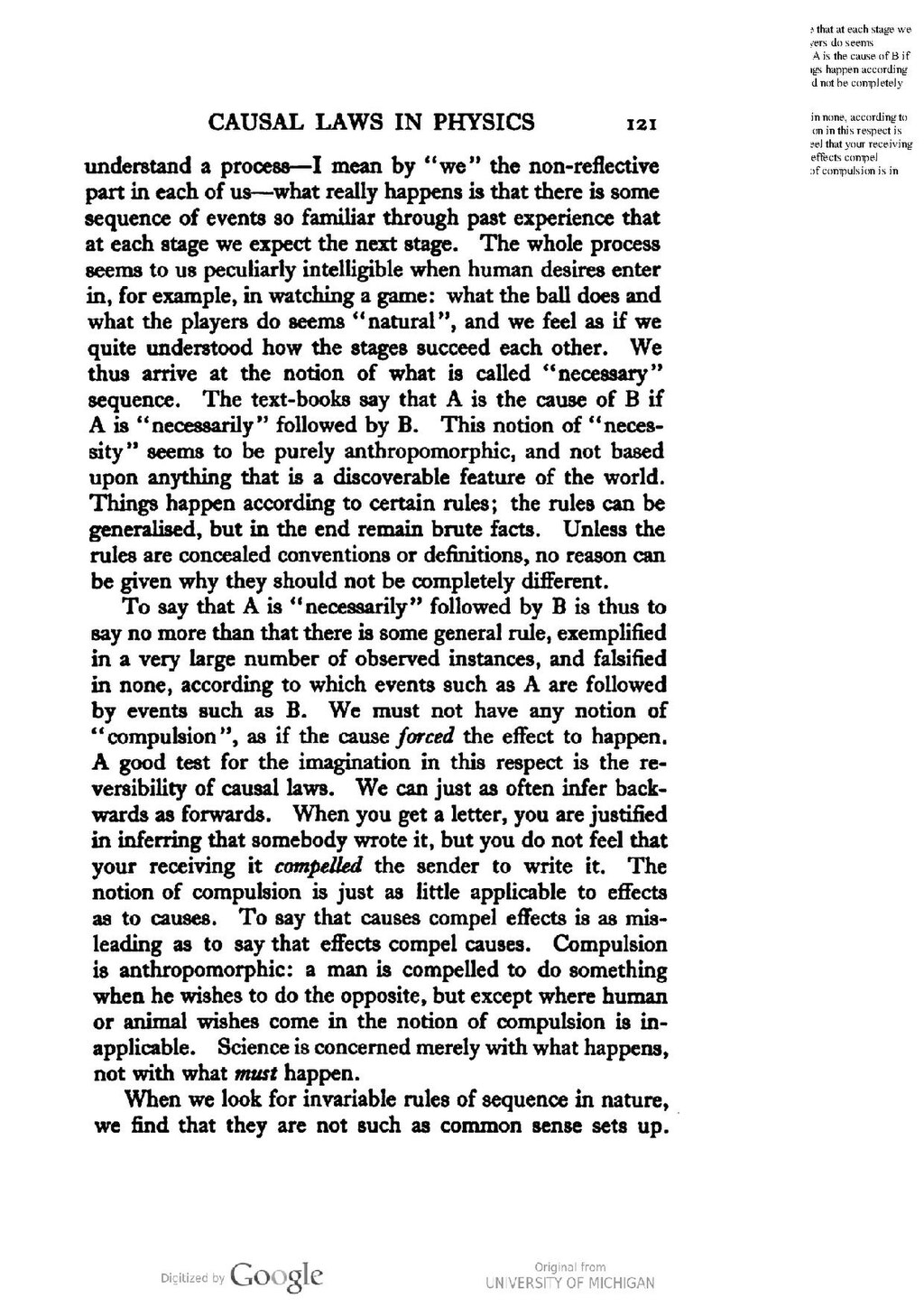understand a process—I mean by "we" the non-reflective part in each of us—what really happens is that there is some sequence of events so familiar through past experience that at each stage we expect the next stage. The whole process seems to us peculiarly intelligible when human desires enter in, for example, in watching a game: what the ball does and what the players do seems "natural", and we feel as if we quite understood how the stages succeed each other. We thus arrive at the notion of what is called "necessary" sequence. The text-books say that A is the cause of B if A is "necessarily" followed by B. This notion of "necessity" seems to be purely anthropomorphic, and not based upon anything that is a discoverable feature of the world. Things happen according to certain rules; the rules can be generalised, but in the end remain brute facts. Unless the rules are concealed conventions or definitions, no reason can be given why they should not be completely different.
To say that A is "necessarily" followed by B is thus to say no more than that there is some general rule, exemplified in a very large number of observed instances, and falsified in none, according to which events such as A are followed by events such as B. We must not have any notion of "compulsion", as if the cause forced the effect to happen. A good test for the imagination in this respect is the reversibility of causal laws. We can just as often infer backwards as forwards. When you get a letter, you are justified in inferring that somebody wrote it, but you do not feel that your receiving it compelled the sender to write it. The notion of compulsion is just as little applicable to effects as to causes. To say that causes compel effects is as misleading as to say that effects compel causes. Compulsion is anthropomorphic: a man is compelled to do something when he wishes to do the opposite, but except where human or animal wishes come in the notion of compulsion is inapplicable. Science is concerned merely with what happens, not with what must happen.
When we look for invariable rules of sequence in nature, we find that they are not such as common sense sets up.
